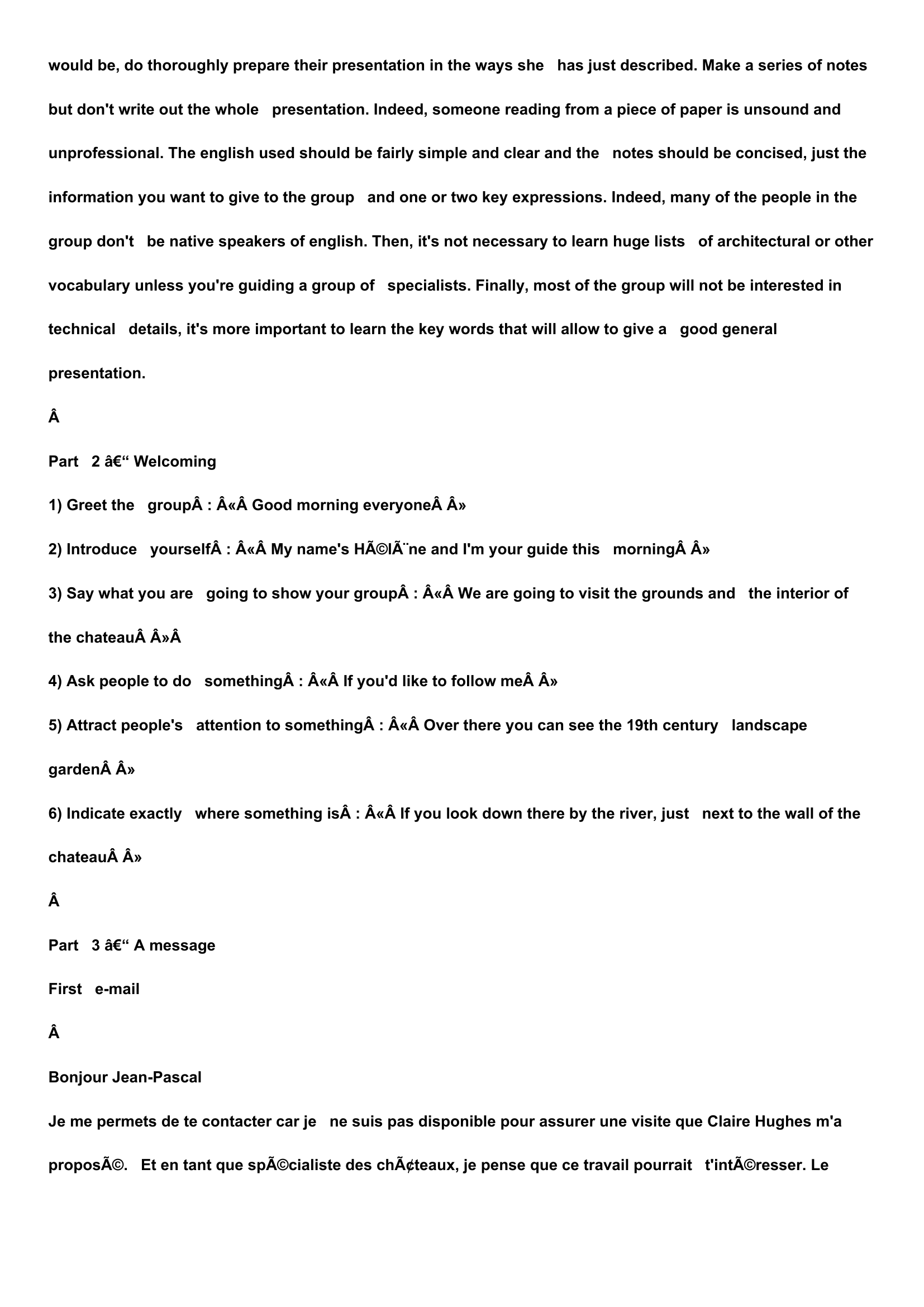BTS Tourisme devoir1 anglais
Publié le 25/02/2017

Extrait du document
Part 1 – Jobs 1) Hélène needs to speak english very often, and not just with groups of American or British visitors. Indeed, outside of July and August, many tourists sights only propose visits in french and english. So Hélène has to give guided tour in english to many different nationalities. They are getting more and more Russian, Japanese and Chinese tourists and even in July and August, these tourists want a guide in those languages. So unless they bring their own guide with them, Hélène has to use english. 2) -If Hélène knows the site, she doesn't have any research to do as such, but she has to find out as much as she can about the group to adapt her presentation to their level of interest. Indeed, she doesn't give the same sort of presentation to a group of students of architecture as she would to a group of school students. -If she's not familiar with the site, Hélène...
«
would be, do thoroughly prepare their presentation in the ways she has just described.
Make a series of notes
but don't write out the whole presentation.
Indeed, someone reading from a piece of paper is unsound and
unprofessional.
The english used should be fairly simple and clear and the notes should be concised, just the
information you want to give to the group and one or two key expressions.
Indeed, many of the people in the
group don't be native speakers of english.
Then, it's not necessary to learn huge lists of architectural or other
vocabulary unless you're guiding a group of specialists.
Finally, most of the group will not be interested in
technical details, it's more important to learn the key words that will allow to give a good general
presentation.
Part 2 – Welcoming
1) Greet the group : « Good morning everyone »
2) Introduce yourself : « My name's Hélène and I'm your guide this morning »
3) Say what you are going to show your group : « We are going to visit the grounds and the interior of
the chateau »
4) Ask people to do something : « If you'd like to follow me »
5) Attract people's attention to something : « Over there you can see the 19th century landscape
garden »
6) Indicate exactly where something is : « If you look down there by the river, just next to the wall of the
chateau »
Part 3 – A message
First e-mail
Bonjour Jean-Pascal
Je me permets de te contacter car je ne suis pas disponible pour assurer une visite que Claire Hughes m'a
proposé.
Et en tant que spécialiste des châteaux, je pense que ce travail pourrait t'intéresser.
Le.
»
↓↓↓ APERÇU DU DOCUMENT ↓↓↓
Liens utiles
- Anglais BTS Tourisme CNED D2
- devoir 2 anglais bts tourisme
- devoir 1 droit bts tourisme
- mercatique module 2 BTS Tourisme
- Devoir Droit bts tourisme cned




